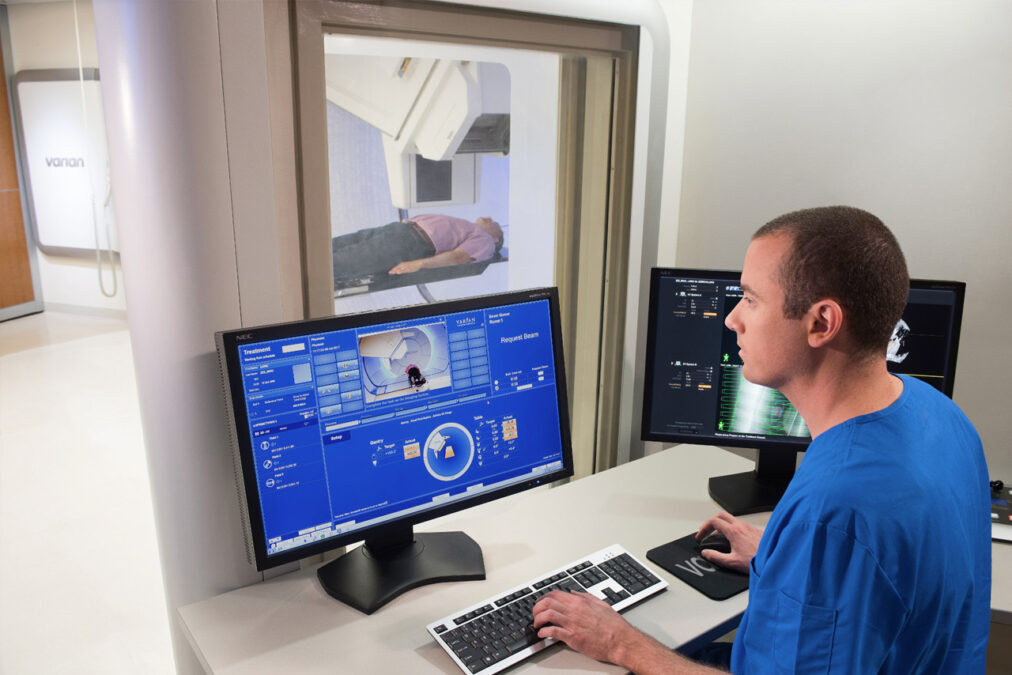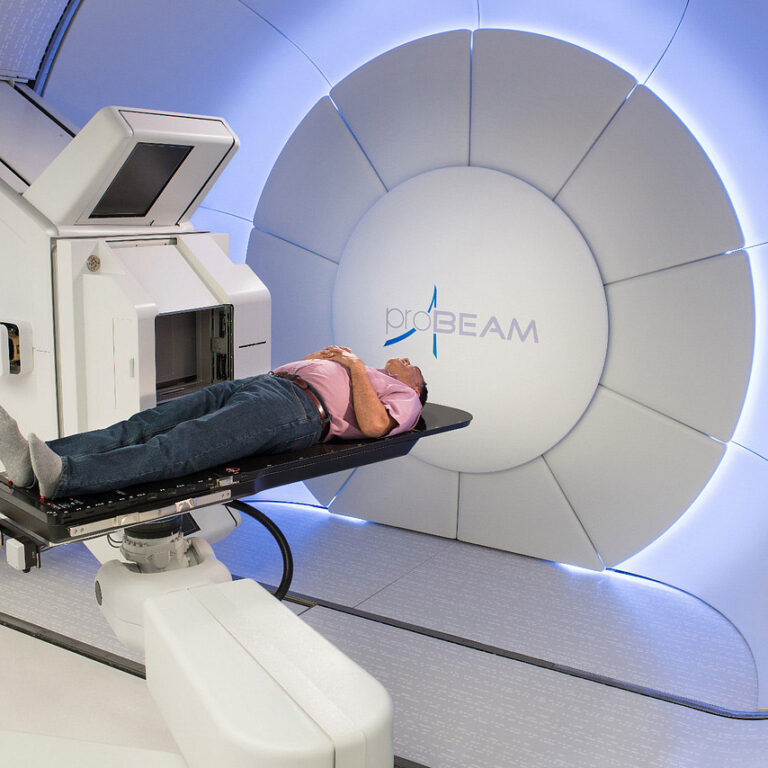Private proton beam therapy treatment for brain & neurological cancers
At Proton International London, the UK’s only private proton beam therapy service, we deliver precise, protective, and powerful treatment for brain and central nervous system cancers.

Who we are
At Proton International London we deliver the effective and precise treatment to our brain & neurological cancers patients at our specialist proton beam therapy treatment centre at UCLH.
Learn moreAbout proton beam therapy
An advanced form of radiation therapy with sub-millimetre accuracy on targeting tumours while minimising damage to surrounding healthy tissue.
Learn moreMeet our cancer specialists
Our treatment is provided by globally recognised consultant oncologists in the treatment of brain & neurological cancers.
Learn moreHere to help you
Our friendly team are here to answer any questions you may have about our treatment for brain & neurological cancers.
Learn more
About Proton International London
Located at University College Hospital (part of University College London Hospitals NHS Foundation Trust), our private proton beam therapy service is offered by Proton International which brings extensive global experience and expertise in providing this advanced and extremely precise form of radiotherapy, to communities across the world.
Our highly respected oncologists work in conjunction with the first-class team at UCLH NHS Foundation Trust. They have a strong interest in clinical research and provide a comprehensive and high-quality service to patients diagnosed with primary brain cancer or brain tumours. Our oncologists have extensive experience in treating brain and other central nervous system cancers and offer PBT as a unique treatment option in the UK.
The availability of proton beam therapy as a treatment is very limited around the world. In spite of its scarce availability, however, it has been shown to be effective in treating certain cancers, whilst also minimising side effects.
Make an enquiry
The brain, spinal and skull-base cancers we treat
Proton beam therapy can effectively treat certain brain tumours and central nervous system (including spine) cancers. The approach that offers the best results for each patient depends on the type, location, grade and stage of the brain tumour, spinal and skull-base cancer, and many other factors.
proton beam therapy precisely targets cancers while minimising radiation to adjacent healthy tissues and critical structures, which is especially important when a tumour is located near critical organs like the brain, optic structures, brain stem and the spinal cord. This means that proton beam therapy can reduce acute side effects during treatment, and late side effects in the months and years after treatment.
Proton beam therapy can be particularly beneficial in the following cases:
- Brain tumours located near critical areas in the brain responsible for vision, hearing, memory and other essential brain functions.
- Tumours situated in parts of the brain that are difficult to access surgically.
- Patients who have undergone surgery and require post-operative radiotherapy
- Tumours with irregular shapes that are challenging to target with other treatment methods.
Proton beam therapy can also be particularly beneficial when treating children with brain and spinal tumours, to reduce the long term side effect of radiotherapy.
Make an enquiry
Treating brain & neurological cancers with proton beam therapy
Proton beam therapy targets and destroys cancer cells using high-energy protons rather than X-rays (photons) or other high-energy radiation sources. It is particularly suited to the treatment of brain, spinal and skull base cancers because of its ability to target radiation treatment precisely while reducing radiation dose to adjacent normal tissues.
Sometimes called particle therapy, it is precise and accurate in how it delivers a dose to the tumour while sparing normal tissues. It is this enhanced precision and normal tissue sparing compared with standard photon radiotherapy that provides particular benefits for patients diagnosed with brain tumours, spinal and skull-base cancers.

What are the benefits of proton beam therapy for treating brain tumours and cancer?
Proton beam therapy is considered an effective treatment option for certain types of brain, spinal and skull base cancers for several reasons:
• It can be precisely aimed and controlled to deliver radiation to a tumour while avoiding exposing surrounding healthy tissue, organs and critical structures to unnecessary radiation, particularly beyond the tumour – called the ‘exit dose’.
• By sparing healthy tissue, proton beam therapy can potentially reduce acute toxicities during treatment, and late side effects and toxicities in the months and years after treatment
• The accuracy with which proton beam therapy can be delivered and the normal tissue spared can allow a high(er) dose of radiation to the tumour, which can be particularly effective for certain types of cancers that are resistant to other cancer treatments used.
• Research studies suggest that proton beam therapy can result in improved outcomes for brain, spinal and skull base cancers in terms of potentially increasing tumour control, and reducing long term side effects of treatment
Meet the consultants



Paying for your private proton beam therapy treatment
The treatment at Proton International London is available to sponsored, insured and self-pay patients, both from the UK and abroad.
We work closely with embassies and have agreements with key medical insurance providers and can provide a range of payment options for patients who wish to self-pay. The cost of proton beam therapy will vary depending on the cancer site and the complexity of the treatment required.
Our team is available to discuss costs with you and to advise on payment options.

Helping cancer patients from overseas
At Proton International London, we warmly welcome patients from around the world.
Our friendly and experienced team are here to support our international patients through every step of their proton beam therapy journey.
We have a dedicated concierge team who can assist with all aspects of your care, including arranging:
- Travel to Proton International London, including organising flights and visas
- Interpreters for all languages
- Accommodation for the duration of your stay
- Clinical/medical support
- Payment of treatment through insurance or sponsorship
We guide and support international patients through every stage of their PBT journey.

If you or someone you know is interested in finding out more about the use of proton beam therapy to treat brain, spinal and skull base cancers, please contact our team using the form below. We will get back to you as soon as we possibly can.
If you’d like to determine your suitability for proton beam therapy at Proton International London, please complete our patient information form.